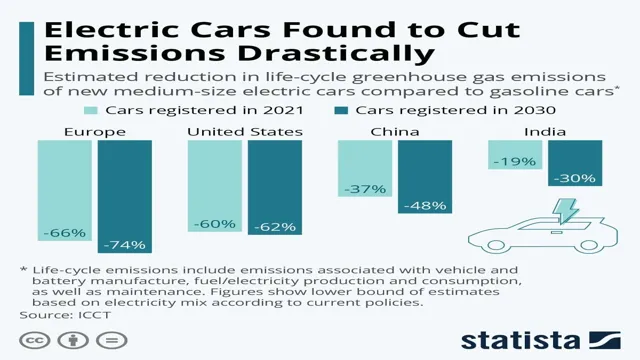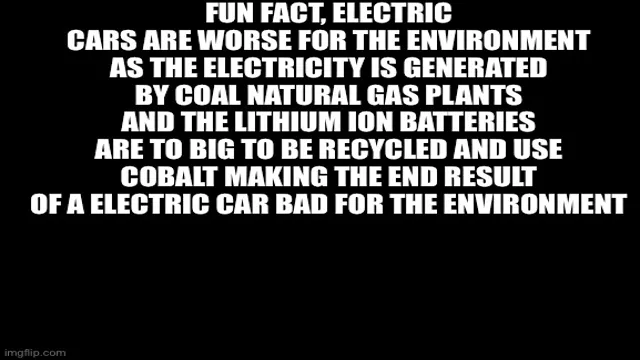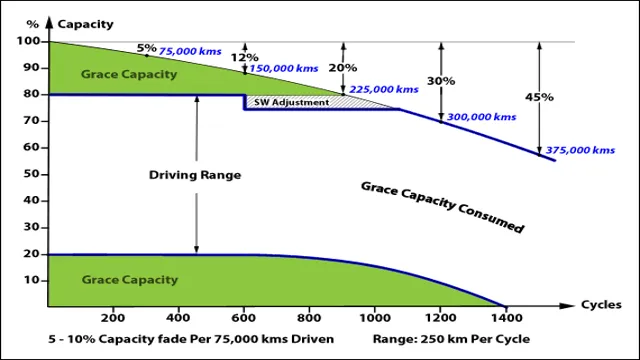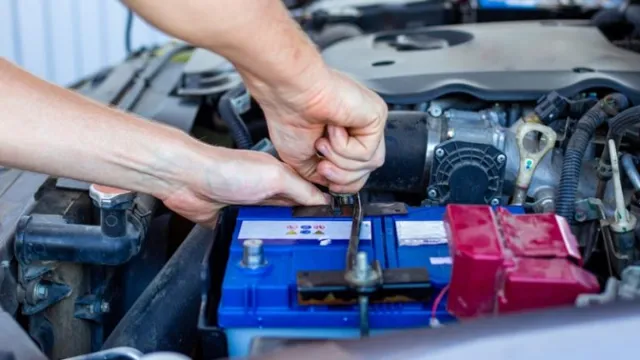Unveiling the Truth: Debunking the Myths of Electric Car Batteries and Their Impact on the Environment
Electric cars are quickly taking over the automobile market, and we can’t help but be excited about it! The idea of being able to drive a car that is not only stylish, but also environmentally friendly is truly inspiring. However, there is still much debate about the environmental impact of electric cars and their batteries. So, what’s the deal with electric car batteries and the environment? Let’s dive in and explore!
Environmental Impact of Battery Production
One of the common concerns about electric cars is the environmental impact of battery production. While electric vehicles produce fewer emissions during use compared to gas-powered ones, the production of batteries contributes to carbon emissions. The production process involves mining, refining, and manufacturing different materials, which requires a significant amount of energy and releases greenhouse gases.
However, studies suggest that the benefits of electric cars outweigh the environmental impact of battery production, particularly when considering the entire lifecycle of a vehicle. Additionally, manufacturers are actively working to improve battery technology and reduce their environmental impact while also increasing their efficiency and longevity. Therefore, while electric car batteries may contribute to environmental issues, the overall benefit in reducing emissions greatly outweighs the negative impact.
Carbon Footprint of EV Battery Production
As the demand for electric vehicles (EVs) continues to rise, it’s important to consider the carbon footprint of EV battery production. While EVs emit fewer greenhouse gases during their use, the production of their batteries can have a significant impact on the environment. The mining and processing of materials like lithium, cobalt, and nickel, which are essential for producing EV batteries, can lead to deforestation, water pollution, and soil degradation.
Additionally, the production process itself requires a significant amount of energy, leading to increased carbon emissions. However, it’s important to note that the environmental impact of battery production varies depending on the country and company producing them. Some companies are making efforts to reduce their carbon footprint through the use of renewable energy sources and more sustainable production methods.
It’s crucial for consumers to research and choose EVs with batteries produced by environmentally-conscious companies to reduce the overall carbon footprint of their transportation choices.

Recycling and Disposal of EV Batteries
The production and usage of EV batteries have witnessed a massive surge lately, leading to concerns regarding their environmental impact. The manufacturing of these batteries requires significant resources such as metals and chemical compounds that are obtained through mining and extraction processes, which may have adverse impacts on the environment. The carbon footprint of battery production and transportation to the manufacturing site is also a concern.
However, researchers are actively exploring ways to reduce the carbon footprint of battery production by exploring alternative materials and implementing more sustainable manufacturing processes. Additionally, the recycling and disposal of EV batteries have gained attention due to their potential environmental impact. Recycling of these batteries can significantly reduce the need for raw materials and decrease the carbon footprint, while the proper disposal of old batteries can prevent the release of toxic substances.
As the demand for EV batteries continues to rise, there is a need for more sustainable approaches to battery production, recycling, and disposal to minimize the environmental impact.
Lifecycle Analysis of Electric Cars
Electric cars are touted as an eco-friendly alternative to gas-guzzling vehicles. But are electric car batteries worse for the environment? Well, the answer to that question is not so straightforward. While the production of electric car batteries does create emissions, the overall lifecycle analysis shows that electric cars are still a better choice for the environment.
In fact, a study conducted by the Union of Concerned Scientists found that even when taking into account the emissions associated with battery production and electricity generation, electric cars still emit significantly less greenhouse gases than their gas-powered counterparts over their lifetime. This is especially true in regions where renewable energy sources like wind and solar power are used to generate electricity. So, while it is true that electric car batteries have an impact on the environment during production, they are still a more sustainable option when you consider the entire lifecycle of the vehicle.
Comparing the Environmental Impact of EVs and Gasoline Cars
Lifecycle analysis of electric cars reveals that they have a significantly lower environmental impact than gasoline cars. This is due to the fact that while the production of electric cars requires more energy and resources, they consume much less energy throughout their lifetime. For instance, the manufacturing of batteries for electric cars emits greenhouse gases, but the use of electric cars reduces emissions of carbon dioxide and air pollutants when compared to their gasoline counterparts.
Additionally, electric cars do not produce exhaust emissions during use, which contributes significantly to improving air quality. Taking into account the entire lifecycle of the vehicle, electric cars are found to be environmentally superior to gasoline cars. Thus, they offer a sustainable alternative that can help mitigate the effects of climate change and promote a cleaner healthier environment.
Examining the Environmental Impact of Electric Car Charging
Electric car charging is often touted as a green solution, but it’s important to look at the environmental impact of the entire lifecycle of an electric car. This is where lifecycle analysis comes in. It looks at the resources and emissions associated with every stage of production, use, and disposal of a product.
In the case of electric cars, there is a lot to consider. From the mining of the materials used in the batteries, to the manufacturing process, to the electricity source used to power the vehicle, there are many factors that impact the environmental impact of an electric car. While electric cars do produce less emissions than traditional gas-powered cars, it’s important to consider all aspects of the lifecycle to get a full picture of their environmental impact.
Assessing the Environmental Impact of Electricity Generation
Electric cars are often viewed as a sustainable and eco-friendly alternative to traditional gasoline-powered vehicles. However, it’s important to understand the full lifecycle emissions of an electric car before making a final judgement. A lifecycle analysis of electric cars includes assessing the environmental impact of the car’s components and materials, manufacturing and assembly processes, battery production, and electricity generation used to power the car over its lifetime.
One factor that contributes significantly to the environmental impact of electric cars is the production and disposal of their batteries. The manufacturing process of electric car batteries involves mining and processing raw materials, such as nickel, cobalt, and lithium, which can have negative environmental impacts. In addition, the disposal of used batteries must be handled carefully to avoid releasing toxic chemicals into the environment.
Another aspect to consider is the source of electricity used to power electric cars. While these vehicles emit no greenhouse gases during operation, the emissions produced by electricity generation impact the car’s total environmental impact. Countries that rely heavily on coal-fired electricity generation will have a higher carbon footprint for their electric cars compared to countries that use cleaner power sources such as wind, solar, or hydropower.
Despite these challenges, electric cars still have the potential to reduce greenhouse gas emissions and contribute to a more sustainable transportation system. By developing cleaner battery production methods, increasing renewable energy generation, and improving the efficiency of electric cars, we can work towards a more sustainable future.
The Future of EV Batteries and the Environment
There has been a lot of debate surrounding whether electric car batteries are worse for the environment than traditional gas-powered cars. While it’s true that electric car batteries contain materials such as lithium and cobalt that can have negative environmental impacts if not sourced and recycled responsibly, the overall impact is still far less detrimental than gas-powered cars. In fact, studies have shown that electric cars produce significantly less greenhouse gas emissions and air pollution than gas-powered cars, even when taking into account the materials used in battery production.
Additionally, as technology improves, so does the efficiency of battery production and recycling, making them even more environmentally friendly. So, while there is still work to be done in ensuring responsible sourcing and recycling practices, the future of EV batteries and their impact on the environment is looking bright.
Innovations in EV Battery Technology
Innovations in EV battery technology are rapidly changing the game for electric vehicles, paving the way for a more sustainable future. With advancements in materials and chemistry, battery performance is improving, providing longer ranges and faster charging times. Additionally, the development of solid-state batteries, which do not rely on flammable liquid electrolytes, presents a safer and more environmentally-friendly alternative to traditional lithium-ion batteries.
These advancements are essential as the transportation sector is responsible for a significant portion of global greenhouse gas emissions. As the demand for electric vehicles continues to grow, so does the need for sustainable energy storage solutions. The future of EV batteries holds promise for a cleaner, greener future.
The Role of EV Batteries in Sustainable Energy Systems
As society shifts towards more sustainable energy systems, the role of electric vehicle (EV) batteries cannot be overstated. These batteries not only power our cars, they are also being integrated into the larger energy grid to help balance fluctuating renewable energy sources. But what about the environmental impact of these batteries? While the production of EV batteries currently requires a significant amount of energy and resources, advancements in technology are making them more efficient and less harmful to the environment.
Additionally, as more EVs hit the road, there will be an increased need for battery recycling programs to ensure that these valuable resources are not wasted. Overall, the future of EV batteries and the environment is looking brighter as we continue to prioritize sustainable energy systems.
Conclusion: The Impact of EV Batteries on the Environment
In the end, it all comes down to perspective – are electric car batteries worse for the environment compared to what? The answer is not as simple as a yes or no, as there are variables to consider such as production methods, materials sourced, and energy to create. However, it is safe to say that as technology advances and the world transitions towards renewable energy, the negative impact of electric car batteries on the environment will decrease. So, while the topic may be controversial, we can all agree that investing in sustainable solutions will ultimately lead to a brighter and greener future.
FAQs
How are electric car batteries worse for the environment compared to traditional car batteries?
Electric car batteries require the mining and processing of rare metals, such as lithium and cobalt, which can have significant environmental impacts. Additionally, the production and disposal of these batteries can generate greenhouse gas emissions.
Are there any alternatives to using lithium-ion batteries in electric cars?
There are some alternatives to lithium-ion batteries, such as hydrogen fuel cells or nickel-metal hydride batteries. However, these alternatives have their own environmental impacts and may not be as widely available or proven as lithium-ion batteries.
Can electric car batteries be recycled?
Yes, many electric car batteries can be recycled. However, the process is not yet widely available or cost-effective, and some types of batteries are more difficult to recycle than others.
How can electric car owners reduce the environmental impacts of their batteries?
Electric car owners can reduce the environmental impacts of their batteries by properly disposing of old batteries, using renewable energy to recharge their car, and minimizing their overall energy consumption through efficient driving habits and lifestyle choices.






